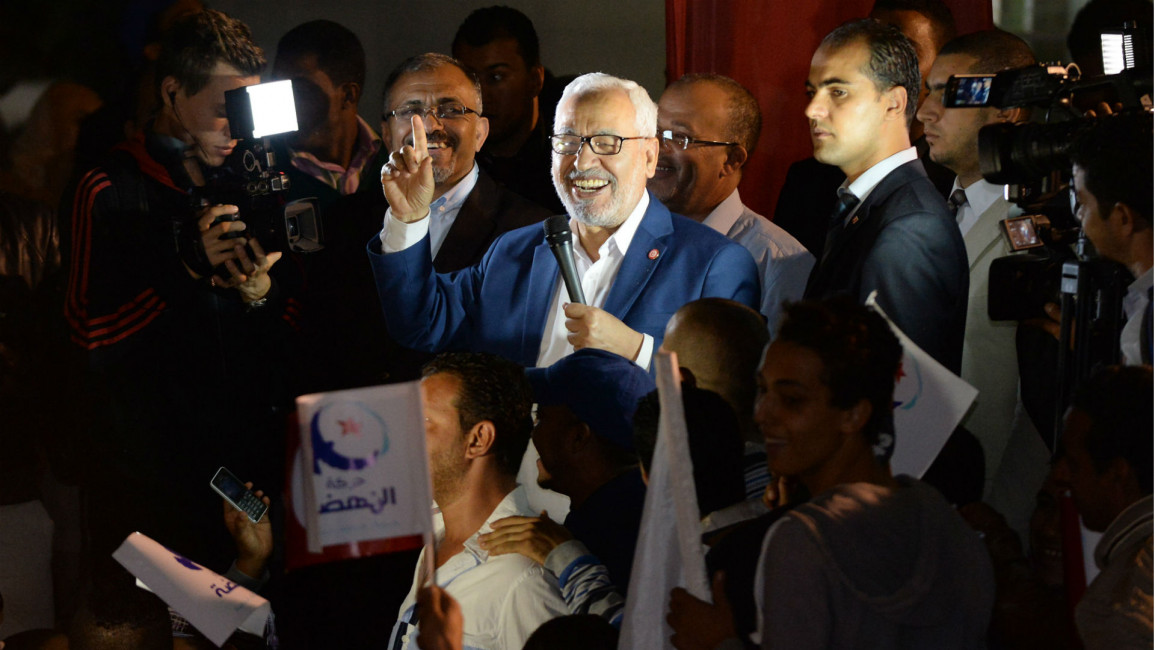
Democracy for all, but not for Arabs
Sections of the Western media along with many European diplomats were delighted at Ennahdha’s defeat in the Tunisian legislative election. Here was an Islamist party losing out to the secular Nidaa Tounes party in democratic elections.
Polling took place without vote rigging, coups or a suspension of the political process. International news agencies took great interest in the event, and in the reaction of Ennahdha’s leader Rached Ghannouchi, who conceded defeat and congratulated his opponent. Everyone was surprised by this humble reaction, so unusual in a region where the winner takes all and the loser forfeits everything.
For decades, Europe and the United States believed that leftists, liberals and secularists in the Arab world stood no chance against the fundam
| Washington backs a regime that, in the 21st century, is still debating whether women have the right to drive |
entalist tide, which supposedly commands the support of the vast majority of Arab society’s poor, religious and disenfranchised. The result was to rely on authoritarian regimes to serve as a bulwark against fanaticism.
In other words, from the viewpoint of right-wing European and American theorists, democracy was seen as a valid form of governance anywhere but the Arab and Muslim worlds. They believed that democracy in the region would only give birth to the West’s worst enemy, so the seed of democracy should never be sowed in the Arab desert.
How did the West, with all its think tanks, political institutions, powerful media and well-informed intelligence services fall into this trap? How did the West come to sponsor tyrannical regimes under the pretence that this was the only way to protect liberty, thus saying Arabs were the exception to the democratic rule?
There are three explanations for this Western policy. First, there is the traditional viewpoint that outside its national boundaries, the West pursues its interests, not its principles. The West backs dictators in the Arab world so long as they ensure that the oil continues to flow and keep markets open for western products. Case in point: the relationship between the United States and Saudi Arabia, where Washington backs a regime that, in the 21st century, is still debating whether women have the right to drive.
The second explanation holds that the influential pro-Israeli Christian right in the United States and Europe has hijacked Western strategy and policy in the Middle East. This group then distorted the image of the Arab protest movement, uprisings and struggles in a direction that favours an Israeli and fundamentalist Christian outlook; a viewpoint that does not believe in the viability of Arabs and democracy as this would challenge the world’s prevailing stereotypes.
This is the reason why Islamists are relentlessly demonised in the West. Misleading clichés are peddled about a politically sterile East that can only give rise to various incarnations of militant fundamentalism because of the region’s alleged intrinsic cultural backwardness and the lack of religious reform.
According to this anti-Islamist outlook, the people of the Arab world have yet to emerge from the Middle Ages, and so the solution is to back authoritarian secular elites, as a less harmful alternative to any surprises the ballot box might bring.
The third and last explanation attributes Western reluctance to support democratic transition in the Arab world as being a problem of the Islamist movements themselves. These movements arguably did not succeed in presenting their cause to a western public and ensure a sympathetic hearing based on shared values of freedom and liberty.
Islamists, for almost half a century, have been preaching to the choir while displaying hostile attitudes to the West, the whole West, without distinction. They advocated the separation of Arabs and Muslims from outsiders, allowing their opponents to advance their own narrative in the West. When Islamists had the opportunity to rule, they established a clerical regime in Iran, a religious-military dictatorship in Sudan, or Islamic emirates led by absolute rulers, the “emir of the faithful,” first with the Taliban’s Mullah Omar and now with the Islamic State’s Abu Bakr al-Baghdadi.
This article is an edited translation from our Arabic edition.
Opinions expressed in this article remain those of the original author and do not necessarily reflect the opinions of al-Araby al-Jadeed, its editorial board or staff.



